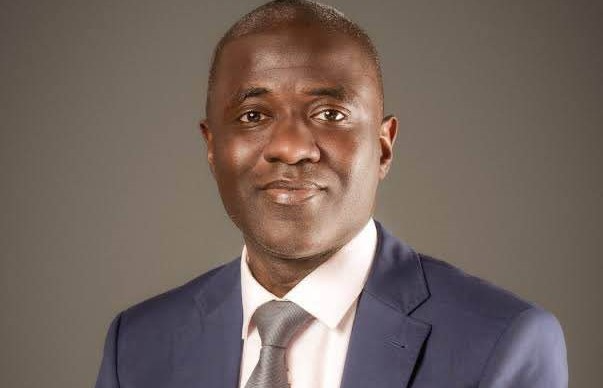In October 2023, the Minister of Communications, Innovation & Digital Economy, Dr. Tijani Bosun, unveiled the four-year Strategic Blueprint for 2023-2027.
At its core, the document aimed to establish a Nigeria that prospers in the digital era, fostering an atmosphere where technological advancements and creativity stimulate economic expansion and inclusiveness. It is a forward-thinking plan that seeks to promote accountability, transparency, and equity by reimagining the country as a whole.
Titled “Accelerating our Collective Prosperity through Technical Efficiency,“ Bosun affirmed that the Agenda is a crucial first step toward creating a Nigeria that prospers in the digital era and is in line with President Bola Ahmed Tinubu‘s “Renewed Hope Agenda.“
“This strategic blueprint outlines a vision for Nigeria that capitalizes on innovation and digital technology‘s transformative power to deepen and diversify our economy,“ the minister averred.
Anchored on five pillars: knowledge, policy, infrastructure, innovation, entrepreneurship and capital, and trade, the first pillar aimed to make Nigeria a center for technical talent on a global scale. To achieve this goal, the federal government would need to improve digital literacy, expand international research partnerships, and establish Nigeria as a leader in technology.
The importance of policy in fostering entrepreneurship and innovation is emphasized in the second pillar. Well-crafted policies will draw investment and talent, creating a conducive environment for Nigeria‘s innovation ecosystem to thrive while guaranteeing that everyone can profit from the digital economy.
Strengthening digital infrastructure is the third pillar‘s main objective. Acknowledging the correlation between strong digital infrastructure and financial success, this plan places emphasis on increasing broadband coverage, optimizing spectrum usage, and improving essential services. These programs will empower companies and strengthen community relations while promoting economic expansion.
Fast-changing global IT scene places a premium on innovation, entrepreneurship, and capital access. The fourth pillar describes programs aimed at fostering innovation, encouraging business endeavors, and drawing in significant financial contributions. Nigeria will maintain a thriving and inclusive digital economy by staying ahead of the curve.
The last pillar, trade, seeks to strengthen Nigeria‘s standing in the world‘s technological community. This strategy, which emphasizes technology commerce, strategic partnerships, and creative policies, aims to make Nigeria a stronger leader in defining the digital future of Africa. This pillar is well-positioned to support economic expansion as the ICT industry keeps growing, and e-commerce spending increases.
NCC pledges its support
No doubt, the minister has initiated a revolutionary path for Nigeria by releasing this Strategic Blueprint. This document serves as a call to action for all parties involved and a pledge to move the country forward.
In line with the five pillars, the Executive Vice Chairman of the Nigerian Communications Commission (NCC), Dr. Aminu Maida, has pledged that transparency will form the bedrock of his leadership as Nigeria‘s chief telecom regulator as this will enable a solid foundation in building a resilient, accountable, and efficient institution.
Maida spoke during a courtesy visit to Tijani in Abuja while briefing the minister on his activities, vision, and strategy since the assumption office in October 2023.
“Transparency is key. It is by transparency that we can self-regulate even as regulators. And by so doing, we would be putting ourselves on our toes, which in the long run will drive the Commission forward to achieve our goals of operational excellence,” Maida stated.
He commended the minister for leading by example in transparency in his leadership style. „Honourable Minister, sir, one of the principles you have shown as a leader is transparency in all your activities, and I must say that it is an attribute that has the potential to bring about a transformed industry that is accountable to both the people and the industry players,“ he said.
The NCC boss conveyed his appreciation, through the Minister, to President Bola Ahmed Tinubu for finding him worthy of the responsibility to lead a critical sector of the economy.
The EVC told Tijani that the visit is a crucial one that gave him the opportunity to share with the minister his vision and priorities for the Commission, adding that his priorities are in tandem with delivering on the 5-Pillars of the Strategic Plan unveiled by the Minister.
“I have been on this seat for about six weeks, and it has afforded me the privilege of a bird’s eye view to understand things better, and identify areas that we urgently need to work on. We are currently carrying out an in-depth study and critical review of issues within the industry. One of the areas we are placing priority on is Quality of Experience (QoE),“ Maida told the Minister.
“At my meeting with industry leaders, we were unambiguous that QoE will not be negotiable. The Commission will take compliance in this regard seriously, and a standard of what is least acceptable will be set,” the NCC CEO stated.
Maida told the Minister that another priority area for him is broadband connectivity, which he considers as the biggest enabler of the digital economy and financial inclusion. He noted that these align with the 5-pillar agenda of the Ministry.
The NCC CEO also reflected on the need to maximize the potentials of innovations in some technological evolutions such as the 5G revolution in order to create more opportunities within the industry and further boost connectivity.
He informed the Minister that a review of internal processes at the Commission is ongoing to engender efficiency and responsiveness of the Commission, including the digitization of most of our operations.
“Under my leadership, the Commission will give priorities to the improvement of our regulatory activities. With this, we hope to see more investors come into the telecommunications industry in Nigeria, with the attendant creation of vertical businesses and increased Foreign Direct Investments, revenue generation, and employment,“ Maida stated.
The EVC also said that “In all these, the goal is for the Commission to achieve optimal operational excellence which underpins the success of all other priority areas that we have set in order to achieve a significant all-round growth of the telecommunications industry“.
Maida equally recalled his visit to the Digital Bridge Institute in Lagos, where he met an institution with vast potentials that would be an asset in driving a knowledge-based economy, in line with the “Knowledge Pillar” of the Strategic Plan unveiled by the minister. „Consequently, we will be prioritizing the revamp, retooling, and redirection of the Institute towards extracting its optimum value in line with our objectives,” the EVC said.
Dr. Tijani, who warmly welcomed the NCC boss, acknowledged the importance and relevance of the telecom regulator in achieving the nation‘s digital aspiration.
“The NCC is a stellar agency, and you have my respect for the work that you do. There is no future for the country without the NCC. Already, the quality you have is good; what we need to do now is to tap into this quality to bring about greater value for the country,” Tijani said.
“I want to assure you that you have the best partner in me. We will work together to achieve the goals and vision we have set,” the Minister assured the NCC CEO.




